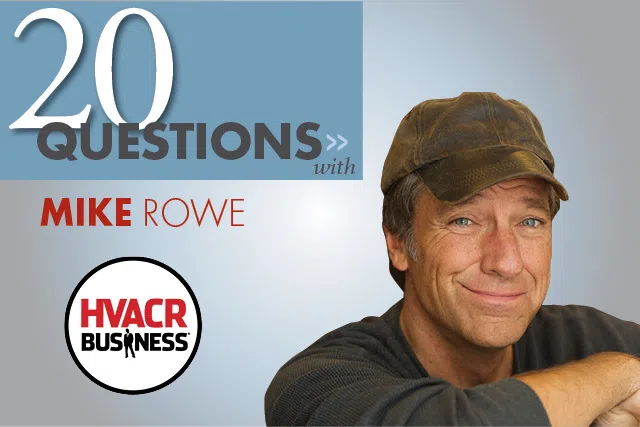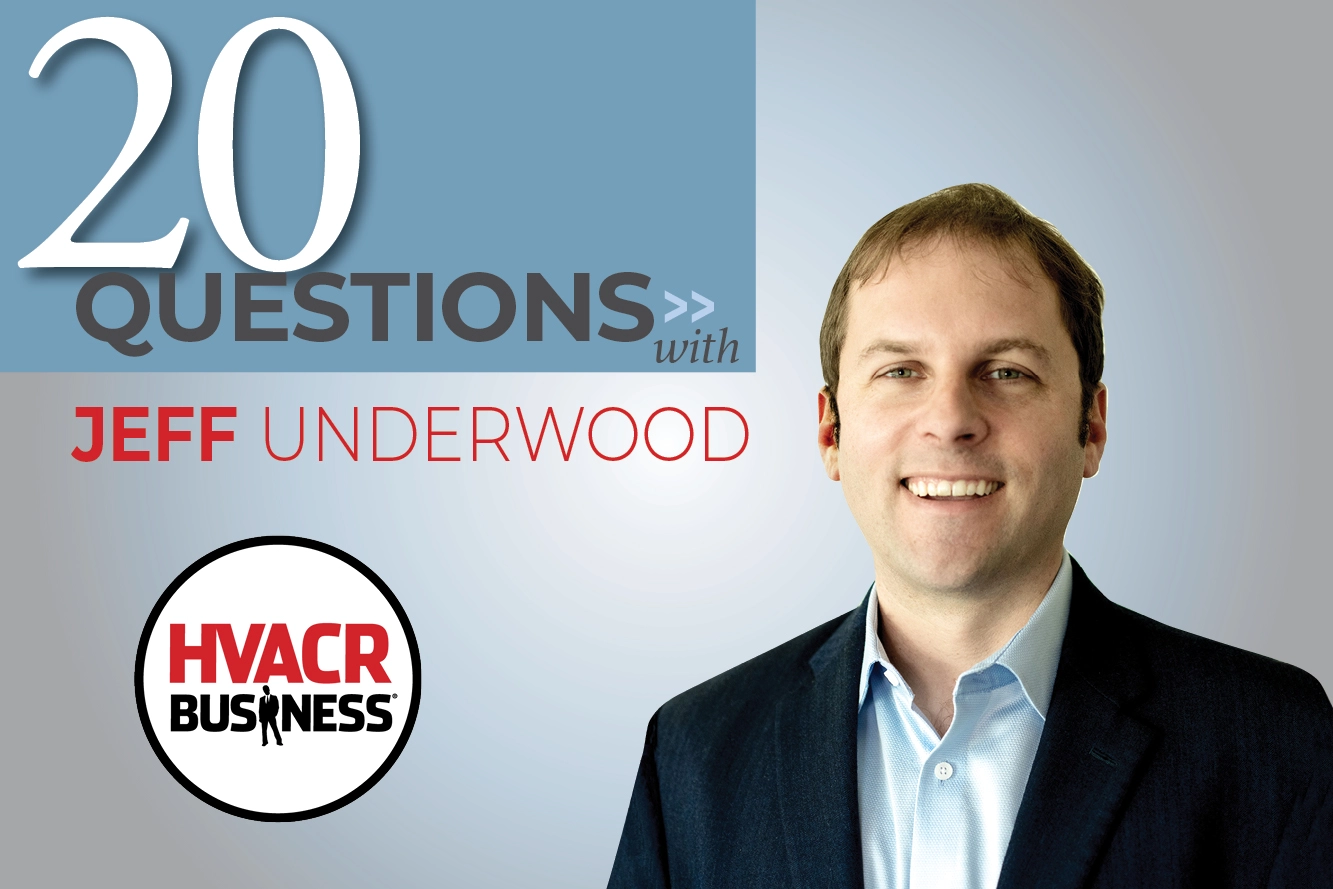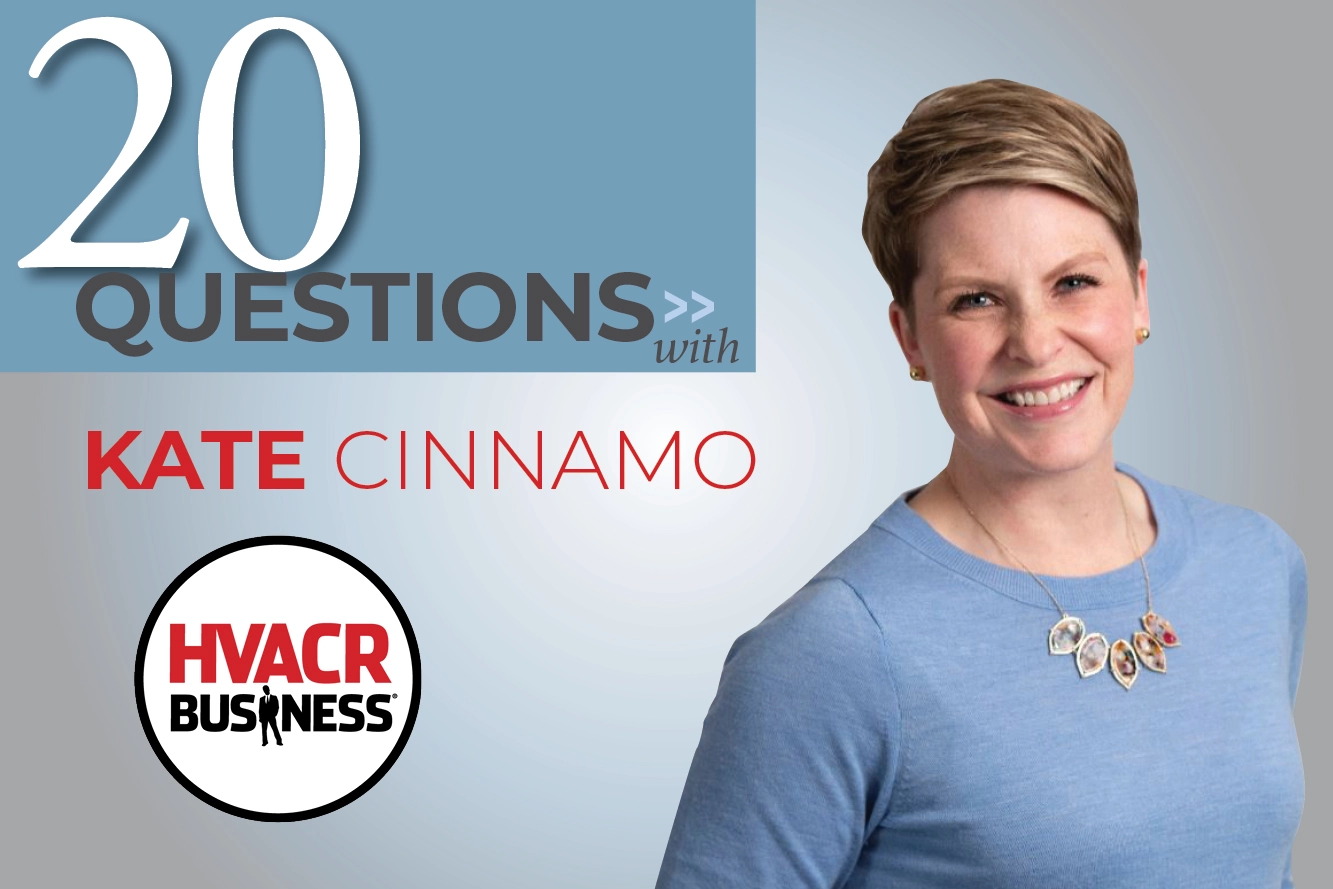HVACR Business Publisher Terry Tanker recently interviewed Mike Rowe, the creator and executive producer of Discovery's "Dirty Jobs" and his new show on CNN, "Somebody's Gotta Do It." Rowe, who recently partnered with Direct Energy & parent company of One Hour Heating & Air Conditioning, Benjamin Franklin Plumbing and Mister Sparky electric & discussed being authentic, how to address the labor shortage and his mikeroweWORKS foundation, which provides scholarships to students pursuing a career in the skilled trades.
1. You grew up in Maryland but live in San Francisco. How did you end up on the west coast?
I was living in L.A. freelancing. A buddy was running the local CBS affiliate here and was in charge of a new show called "Evening Magazine." They needed a host. I didn't really want a full time job, but I was happy to fill in, so I moved up here and went to work impersonating a host.
2. Your mom and dad were schoolteachers & are they surprised by their little boy's success?
I think amused would be a better expression. They've had a front row seat watching me "Forest Gump" my way through a very strange industry. And, relieved when I could pay off bills and make ends meet.
3. Is it true you were an Opera singer?
Believe it or not, I sang for the Baltimore Opera. I recall wanting a union card and the opportunity to meet girls. One thing singing did for me was to cure me of a stammer and opened the door to a whole new world of performance.
4. Everyone likes you & executives, laborers, men, women, grandparents, students, my daughters & have you ever considered a political career?
Thanks. That's a very complimentary question. I think the best way to destroy any kind of broad-based bipartisan appeal is to get into politics. I've never been interested in the structure of politics as we know it today, but I am interested in why most people seem to not dislike me. I think it's just being sincere and authentic. Politicians want to fit in while on the campaign trail but they rarely do.
5. I watched a rerun of "Dirty Jobs" recently where you were at a chicken farm in Arizona being authentic & cleaning up poop in a skid loader. Sometimes, do you wish you weren't so authentic?
That was a fun trip actually, and kind of an important one. I'd been trying to get into Hickman's Farms for years. The farmers really feel under siege by the media; they're rarely portrayed fairly. But they thought I would give them a fair shake.
That segment led to a relationship with the National Egg Board, which in turn led to a relationship with the Beef Council and Dairy Council. And ever since then I've spoken at every major food provider and every major agricultural concern in the country.
6. Your new CNN show, "Somebody's Gotta Do It" is actually a precursor to Discovery's "Dirty Jobs" & How did that start?
Right, so I'm in San Francisco working for CBS impersonating a host and my mom calls and tells me my granddad is ill, he's in his early 90s and I wanted to do a show that looked like work, or at least a segment that he would be able to look at and recognize as something he did in his life. That was the motivation for it.
The path again was crooked, as always, but my boss said, "yeah go head out and shoot whatever you want." I just wanted to go into real places of work and see what happened. So from sewers, to farms to factories, I started going around the Bay Area and doing shorter profiles that would ultimately lead to "Dirty Jobs;" we called them "Somebody's Gotta Do It."
7. Why can't most people get their heads around the fact that a dirty job is a great job?
Because we promote work the same way we promote education. To keep it simple, the persistent implication is that one path is the best path for the most people. With respect to education, that path is the pursuit of a four-year degree.
The kinds of jobs that the pursuit of a four-year degree will qualify you for are very specific and so that portion of the workforce and that portion of available jobs have become aspirational because they're attached to that specific form of education. A lot of opportunities in your industry have fallen into the second place category and it's very, very natural for parents to want something better for their kids than they had.
8. Do you think that's why so many baby boomers never opted for skilled trades?
Parents, guidance counselors and peers will shape what you grow up thinking a good job is; it's always been that way. It's the most natural thing in the world for parent to want something better for their kids than they had. It's not sustainable or rational, but it's natural.
If there were any real truth to it, visa vie job satisfaction, happiness, those kinds of things, then there would be no such thing as a miserable person who had a decent job. But of course many people with decent jobs are miserable.
9. So, they're miserable because they've set their expectations too high?
It's what we do. It's the same notion of, if you talk about marital bliss, in most people's minds it comes down to, well if I could find my soul mate that would cause happiness. And then you go on this search for your soul mate, which is nothing but a snipe hunt. People do the same thing in your industry, that's why we have a skills gap. People go, "You know what, I'll be happy if I can get a good job."
Well, what's a good job? "Well a good job is going to pay me $100,000 a year, give me three weeks off a year, maybe four. It's going to provide an opportunity to do meaningful work," and they just go down the list of all the things they need to have this good job and then pretty soon they've created a wall that's impossible to get over. Not because the job is good or bad, it's because they built a big wall.
10. We've had a critical shortage of service technicians for years & is this because, as an industry, we've done a poor job of promoting this as a great career path?
You're right, and it's really important in my view to address the fact that your industry has done a bad job of presenting the opportunities in a way that is appealing. It's a hard thing to accept, but every company I've worked with that struggled with recruiting has gotten in their own way.
11. In January, President Obama announced a proposal to make two years of community college free for anybody who'd like to signup for it & wouldn't we be better off tweaking that to just two years of free trade school instead?
Yes, of course. There are only two four-letter words I'm truly suspicious of & one is debt and the other is free. In my experience, we have too much of the former and the latter simply doesn't exist. When somebody tells me it's a free education, it just means somebody else is paying for it.
12. So, how should all that money be spent?
It doesn't mean that I don't think that we should invest in education; I would never say anything like that. There are two very simple categories with respect to spending money on education. The first category is we're going to invest in a very general way for the future, and that's critical.
More critical is the other category where you can say, we know for a fact that Direct Energy is going to hire between 2,000-4,000 people next year. I know Caterpillar is looking to hire X.
I know Komatsu and John Deere and blah, blah … I know how many people these companies would hire if they were available. When I look at money being spent for education, my personal bias is to see it go toward programs that will train people to step into opportunities that currently exist and need to be filled.
13. What was launched first, mikeroweWORKS or Profoundly Disconnected?
mikeroweWORKS was launched on Labor Day 2008, and that came specifically out of my desire to do something positive for the industries that had allowed "Dirty Jobs" to thrive. Everywhere that I'd gone, I heard the same thing from people, employers desperate to find people willing to learn a skill that was actually in demand.
So mikeroweWORKS is the foundation and it's also the company. Profoundly Disconnected was one of several individual campaigns I did in partnership with various people. It came out of the relationship with Caterpillar and we've done all kinds of things to call attention to the trades and the skills gap.
14. Why so much attention on the trades?
We've got a skills gap. We have $1.2 trillion in student loans. We have a whole generation of people who are enamored of jobs that don't really exist and a whole educational infrastructure that continues to push people in a very specific direction.
The challenge for me is how to talk about that in a meaningful way week after week, month after month, year after year with a variety of different partners. I'll figure out something to do with Direct Energy, just like I figured out something to do with Cat, and with Ford.
15. How did you get involved with Direct Energy?
We get approached every day by somebody who has a plan, and we say no 99 percent of the time because if you already have a plan, then you don't need me or my foundation. But if you've read up on the foundation and you share our feeling that the skills gap is real, and if the underlying company is interested in helping close it, then that will give us a basis at least to form an authentic partnership. Then we can talk about the actual commercial work you need to do.
16. Then what happened?
The next hurdle is that I really, passionately don't want to work with actors. Nothing against actors, some of my best friends are actors. But you work in a real industry with a real challenge and there are thousands of opportunities within Direct Energy alone for real people. Also, we have a scholarship fund & it's modest, but we've given away about $3.5 million in work ethic scholarships, so they've got to support that because it's one thing to say it and it's another thing to do it.
17. Using real people, not actors & that goes back to your belief in being authentic, right?
The question companies ought to be asking is, "What is persuasive to the person who is honestly evaluating the opportunities in your industry?" Kids, especially today, have a really good bullshit meter and know when they're being sold something. You can smell it. They're suspicious of the actor in the shiny uniform. That's why I told Direct Energy the only way this works is they've got to use their own people.
18. So everything seemed to line up perfectly?
What it really comes down to is Benjamin Franklin, Mr. Sparky and One Hour. Those are the brands that people know, those are run by franchisees, which I love, and so to me Direct Energy and their consumer brands are the perfect mix of entrepreneurship through a franchise model, opportunity through the willingness to learn a skill and that's the big thing.
They're going to hire between 2,000-4,000 people in the next year, and the following year they're going to need to do it again. They don't know where those people are going to come from & we're in business not because those franchisees need a spokesperson, they already have a spokesperson, it's called their employees. What they need is a fan and an advocate around an issue that matters to them.
19. You've called yourself a fan, not a spokesman, for the trades & why?
I'm not a spokesman for blue collar work, I'm not a spokesman for Direct Energy and I'm not a spokesman for the people in your industry. I'm a fan of all of those things and I also depend the same way most American's do, on a skilled workforce. Take it for what it's worth, but identities matter and my identity in this whole conversation is that of a fan, of an avatar, maybe even a conduit. The real trick is figuring out how to be authentic in your job, in your career, in your life, in whatever you're doing in 2015, that's what's for sale.
20. You're an advocate of show up early and stay late, make your boss look good. Has that always been the case?
No, probably not. But the more entrepreneurs and small business owners I've met, the more sympathetic I've become to the enormity of what they're trying to accomplish. It's so hard to hire people. It's hard to find good ones, it's hard to keep them and I just have a lot of respect for obviously hard work, sure blue collar work, but people make the mistake of looking at dirty jobs and concluding that I'm an advocate for blue-collar work, period.
Visually, that is kind of an obvious thing to conclude but really I'm as much a fan of the guy who shows up early and stays late and works his butt off, as I am of the person who created the opportunity for him or her.






